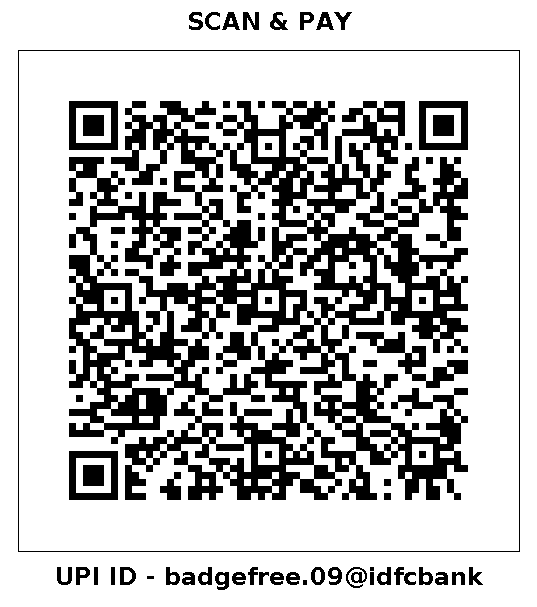In the intricate tapestry of personal and professional development, the role of feedback emerges as a guiding force that shapes individuals, teams, and organizations toward excellence. In a world marked by perpetual change and the pursuit of improvement, feedback assumes a pivotal position as both a mirror and a compass. It provides the means to navigate the complex terrains of growth and innovation, fostering an environment of self-awareness, effective communication, and adaptability. While giving and receiving feedback can be challenging, its significance spans diverse dimensions, making it an indispensable practice to embrace.
The art of giving feedback is a cornerstone of growth and progress, heralding transformation across various spheres of life. In the ever-evolving landscape of work and personal development, feedback acts as a catalyst for improvement, illuminating strengths while highlighting areas that necessitate refinement. Devoid of feedback’s guiding light, one would remain ensnared in ignorance, oblivious to the facets requiring enhancement. Constructive criticism and positive reinforcement serve as vehicles of growth, nurturing a culture of learning and achievement. Moreover, feedback orchestrates effective communication, bridging the gap between intention and comprehension. This is particularly pertinent in professional settings, where clarity and cohesion are paramount to realizing shared objectives. Feedback propels motivation, furnishing acknowledgment for accomplishments and roadmaps for advancement. Timely feedback triggers a cycle of continuous enhancement and innovation, instigating introspection that identifies patterns, strengths, and shortcomings. Within team dynamics, feedback fosters trust, underscoring the significance of each voice and perspective. Constructive feedback steers conflict resolution, enhancing team unity and productivity. Additionally, feedback bolsters accountability by monitoring progress against expectations, nurturing a culture of dependability. As an encompassing force, feedback nurtures both achievement and adaptation. Acknowledging success fortifies positive behaviors, while the ability to absorb and act on feedback enhances adaptability, an essential trait in a world characterized by change. In essence, feedback’s influence reverberates across growth, communication, motivation, and accountability, permeating the learning environment and shaping the trajectory of personal and professional journeys. By recognizing its transformative power and fostering a culture of open communication and growth, individuals, teams, and organizations stand poised to achieve their zenith.
Why giving feedback is so Important?
Giving feedback, although sometimes difficult, is a necessary cornerstone of personal and professional growth. In an evolving world of constant change and improvement, feedback is a compass that guides individuals, teams and organizations to excellence. Its meaning resonates with different dimensions, making it a core practice we should embrace. Feedback acts primarily as a catalyst for improvement. It acts as a mirror that reflects our strengths and reveals our areas of improvement.
Without feedback, we would be stuck, unaware of the aspects that need to be refined. Constructive criticism and positive reinforcement allow us to grow, learn and succeed in our endeavors. Feedback is an important part of fostering effective communication. It creates a channel through which thoughts, opinions and observations are shared openly. In the professional field, clear communication is paramount to avoid misunderstandings, align goals and improve team collaboration. Feedback bridges the gap between intention and understanding and creates an environment of transparency and clarity.
In addition, feedback fosters motivation. Recognition for a job well done provides a sense of achievement that motivates people to continue striving for excellence. On the other hand, constructive feedback provides a road map for growth and instills a desire to surpass past achievements. Prompting from timely feedback drives continuous improvement and innovation. When feedback is given thoughtfully, it increases self-awareness. It encourages self-reflection and encourages people to critically evaluate their actions and results. This process of introspection allows us to identify patterns, acknowledge our strengths and weaknesses, and make informed decisions about personal and professional development.
In the context of team dynamics, feedback builds trust. It shows that everyone’s input and perspectives are valued. Teams that embrace feedback create an atmosphere of mutual respect where every member has a voice. Constructive feedback enables conflict resolution because concerns are addressed before they escalate, improving team cohesion and overall productivity.
In addition, feedback increases accountability. Once goals are set and expectations outlined, feedback acts as a checkpoint and ensures that progress is in line with those expectations. This sense of responsibility encourages people to take responsibility for their tasks and responsibilities, which promotes a culture of trustworthiness and commitment.
Feedback isn’t just about pointing out flaws; it also represents success. Acknowledging achievements not only boosts morale, but also reinforces positive behavior and results. Acknowledging growth and achievements, big or small, fosters a culture of positivity and resilience. Feedback plays a central role in the learning environment. Teachers, mentors, and tutors provide guidance to help students navigate difficult topics or assignments. Feedback acts as a compass, guiding them to effective strategies and lighting paths, fostering deep understanding and mastery.
Finally, feedback increases adaptability. In an era of constant change, feedback recipients have the flexibility to adapt, learn from their experiences, and thrive in evolving landscapes. The ability to receive, internalize and act on feedback is a hallmark of flexibility and progress. In summary, feedback is the cornerstone of growth, communication, motivation and accountability. Its ability to increase self-awareness, build self-confidence and improve adaptability makes it essential for personal and professional development. By recognizing the profound impact of feedback and creating a culture that values open communication and growth, we pave the way for individuals, teams and organizations to reach their full potential.
Why do we struggle to give feedback?
Although giving feedback seems simple, it often involves complex psychological, social, and cultural dynamics that contribute to a common struggle that many people face. This complexity comes from a combination of factors, each of which explains why giving feedback can be a daunting task. One of the most prominent reasons for this struggle is the inherent fear of damaging relationships. Constructive criticism, although intended to promote growth, can inadvertently come across as negative or judgmental. Humans have an innate tendency to avoid harm, and this includes avoiding situations where our words may cause emotional pain. Discomfort from possible shock, especially in relationships, becomes a significant barrier to open feedback.
In addition, the fear of negative reactions increases this struggle. When giving help, the feedback giver may fear defensiveness, arguments, or negative feelings from the recipient. This fear of retaliation can discourage people from expressing their thoughts, creating a cycle of avoidance. The struggle to give feedback is also related to personal insecurities. Contributing to someone’s activity inevitably opens the door to evaluating the judgment and credibility of the giver. This type of self-evaluation can be intimidating, especially if the person giving the feedback has no authority. This fear of inadequacy can inhibit the willingness to share constructive criticism.
Cultural norms also play an important role in this struggle. Societies often encourage avoiding confrontation and maintaining harmony. Open discussions about areas for improvement can be interpreted as adversarial and are therefore often avoided to maintain social cohesion. This cultural tendency further increases the difficulty of giving feedback, especially in collectivist cultures where group harmony is a priority. In addition, the lack of effective feedback training strengthens the struggle. Giving constructive criticism is an art that requires a balance between honesty and tact. Without proper guidance on how to frame feedback positively and constructively, people may be forced to resort to avoidance because they lack the means to communicate their thoughts without causing discomfort. Fear of compromising relationships, potential negative reactions, personal insecurities, social norms and lack of education all add to a complex web of challenges that contribute to the struggle to give feedback.
However, the importance of feedback in personal and professional growth cannot be overstated. Constructive criticism is the cornerstone of improvement, and overcoming barriers to feedback is essential. To overcome this struggle, individuals and organizations must emphasize the importance of open communication, create an environment where feedback is welcome, and provide training on how to provide constructive feedback. In summary, the struggle to give feedback is due to the interplay of psychological, social and cultural factors. While fear of damaging relationships, fear of negative feedback, personal insecurities, cultural norms and lack of effective training can hinder the process, recognizing the importance of feedback is the first step to overcoming these challenges. By fostering a culture that values open communication and provides the tools to provide effective feedback, individuals and organizations can navigate this struggle and unlock the benefits of constructive criticism for personal and collective growth.
In the tapestry of team dynamics, feedback weaves threads of trust, highlighting the significance of each voice and perspective. Constructive feedback emerges as a lodestar for resolving conflicts, enriching team unity and productivity. Moreover, feedback fosters accountability, vigilantly monitoring strides towards predefined expectations and nurturing a culture of reliability.
An all-encompassing force, feedback nurtures both the bloom of achievement and the embrace of adaptation. While acknowledging success bolsters constructive behavior, the capacity to absorb and act upon feedback propels adaptability—a quintessential trait in an era characterized by change. Ultimately, feedback’s resonance reverberates across growth, communication, motivation, and accountability, infusing the very learning environment and shaping the trajectory of personal and professional odysseys. Through a profound recognition of its transformative potency and the cultivation of a culture founded upon open dialogue and nurtured growth, individuals, teams, and organizations are poised to ascend towards their zenith.
Blog Writer:
Navreet Kaur
Young Business growth accelerator, badgefree





